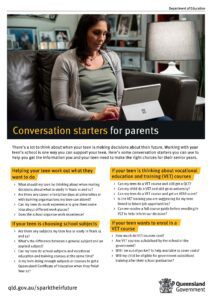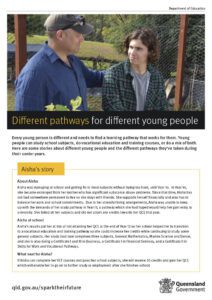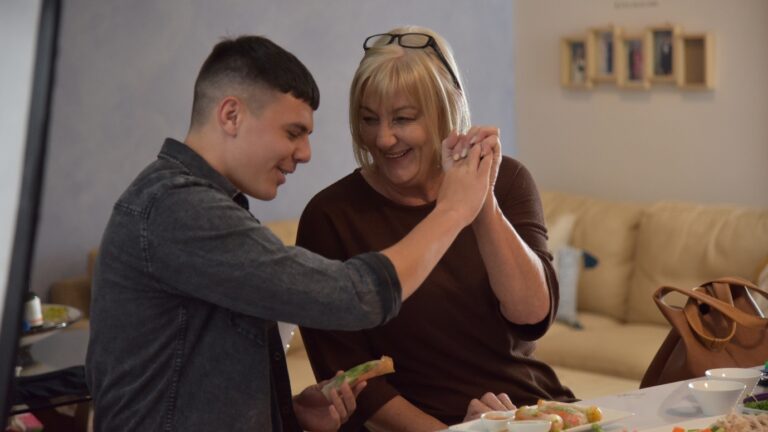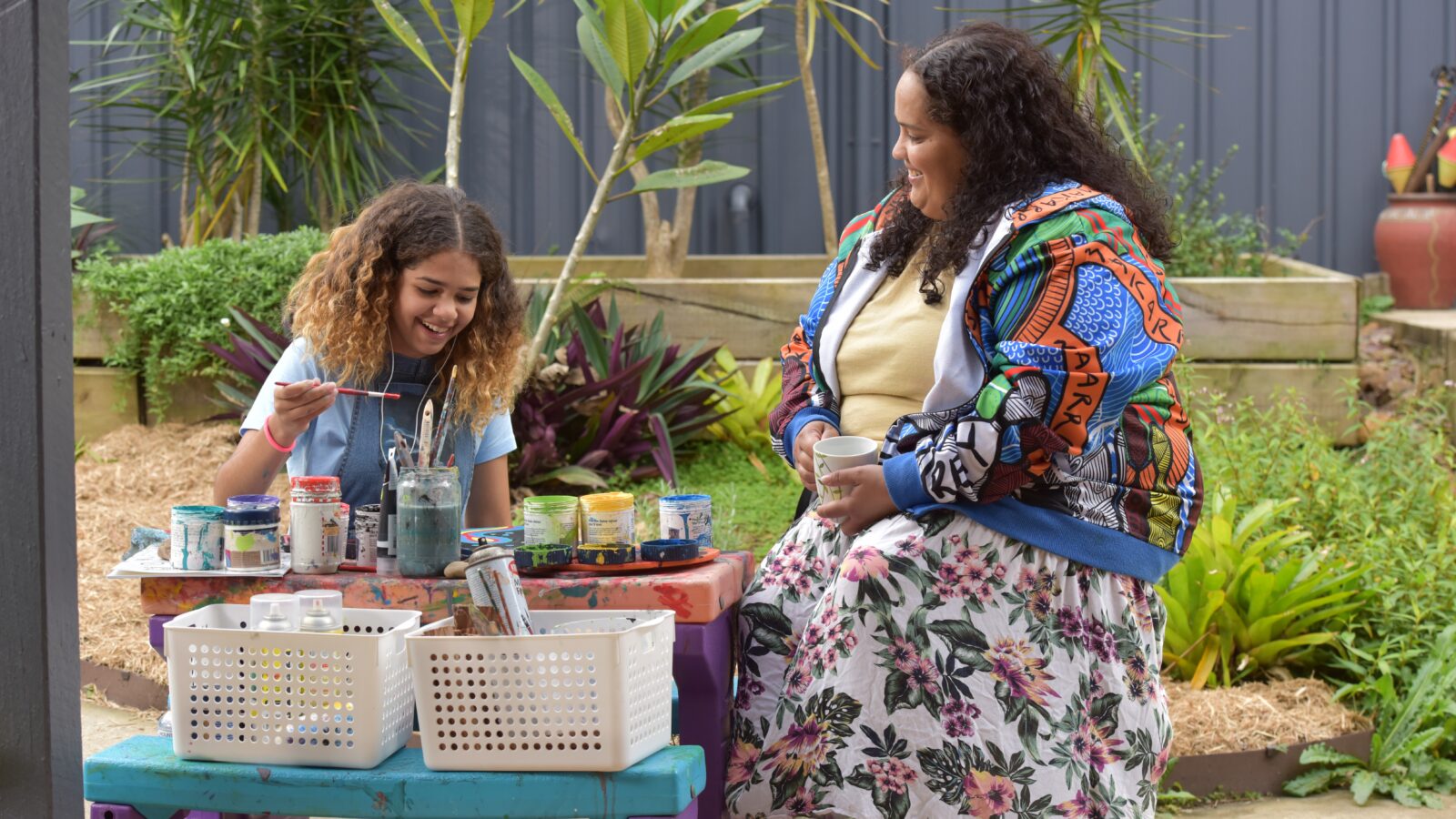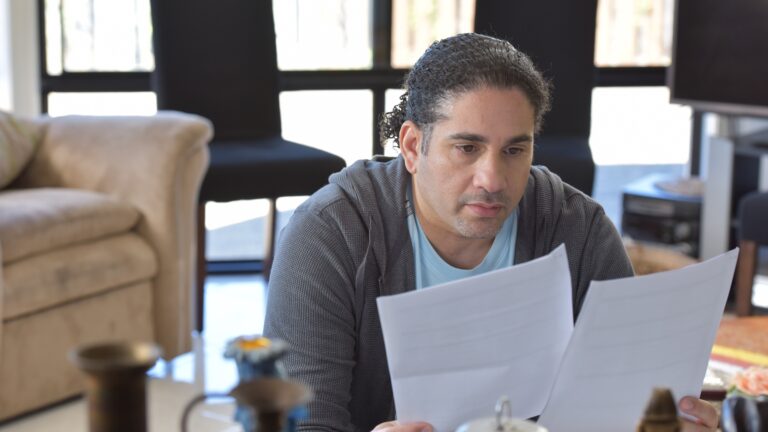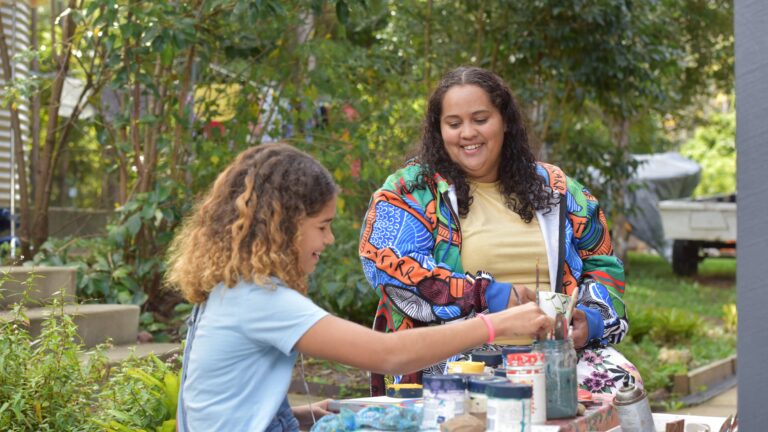Key Points
- The Queensland Certificate of Education is awarded at the end of Year 12 to students who complete enough learning.
- Students need to earn at least 20 points to get the certificate.
- Students can earn points for doing different school subjects and courses, as well as programs outside of school.
- Staying at school to the end of Year 12 can improve improve young people’s chances of going on to further study or find work after school.
- Working with your teen’s school can help your teen make good decisions about their future.
The senior years at high school can feel both exciting and daunting for teens. They have a lot to grapple with dealing with study, friendships and home life, while also planning for their future. Working towards a Queensland Certificate of Education offers many interesting learning pathways and can help students set themselves up for a successful life after school.
So what’s the Queensland Certificate of Education?
- The Queensland Certificate of Education, or QCE as it is known for short, is the qualification Queensland students receive at the end of Year 12 if they complete enough learning.
- It is awarded by the Queensland Curriculum and Assessment Authority.
- Students earn credits (points) for the learning they complete.
- Students need at least 20 credits to receive the certificate.
- Students earn different points depending on what subjects, courses or qualifications they complete.
- A QCE is different from an Australian Tertiary Admission Rank (ATAR) which is a national system used to rank students who want to go to university.
Does every student get a QCE?
No. To get a QCE, a student must complete a set amount of learning worth a minimum of 20 credits (points) from a combination of subjects and courses. Students are awarded credits based on the learning pathways they take. For example, students can gain their credits from school subjects or courses, vocational education and training qualifications, or through recognised studies.
What subjects and courses contribute to a QCE?
There are lots of exciting opportunities available for young people embarking on their senior years of study. Students working towards a QCE can choose from senior school subjects, vocational education and training, workplace and community learning, and university subjects undertaken while at school.
General subjects
General subjects prepare students for university, further education, study and work and include subjects like English, General Mathematics, Ancient History, and Biology. These subjects contribute to an ATAR, and may need to be studied to gain entry to some university courses. Use the QTAC course search to learn more about the subject requirements for different courses.
Applied subjects
Applied subjects focus on practical skills and prepare students for further education, training and work. Subjects include Essential English, Business Studies, Industrial Technology Skills, and Tourism.
Short courses
Short courses suit those students interested in pathways to vocational education and training or work when they leave school. Examples include short courses in literacy, numeracy, and Aboriginal and Torres Strait Islander languages.
Vocational Education and Training (VET)
VET prepares students for work through practical learning. Around 60 per cent of Queensland senior students achieve VET qualifications. Some of the most popular courses are business, information and communication technology, hospitality, construction, fitness, and sport and recreation.
Other courses
These courses allow students to study a particular area of interest through recognised certificates and awards or university subjects studied while at school.
You can read more about the subjects and courses that can contribute to your child’s QCE.
Does my teen need a QCE?
Receiving a QCE is a great accomplishment that recognises the learning achievements of young people. With 96.5 per cent of Queensland students achieving a QCE or Queensland Certificate of Individual Achievement in 2019, many employers expect young people to have a QCE. A QCE may also be needed to gain entry to some vocational education and training courses.
However, if your teen doesn’t quite make it and misses out on a QCE, this doesn’t mean all is lost. Staying at school until the end of Year 12 can make all the difference for a young person, even if they don’t achieve a QCE. We know from research that young people who leave school early do not have the same chance of success as those who complete Year 12. In fact, for every three young people who leave school early, one of those young people will not be in study or work in the year after they leave school. We also know that school provides an important social network for teens and can help keep them connected and motivated.
Students who miss out on a QCE but manage to ‘stick in there’ to graduation have already improved their prospects.
If your teen doesn’t quite get the points they need, talk to the school about what they can do. They may be able to complete some additional courses outside of school or come back early the next year to complete the credits they need.
When you and your teen talk about their future, let them know that while staying at school might sometimes seem hard, sticking at it and working towards a QCE will help set them up for a great start to their life after school.
Work with your teen’s school
Working with your child’s school can help your teen get the support they need to make decisions about their future. The school guidance officer, along with your teen’s teachers, can help you and your teen. In Year 10, the team at your child’s school will work with you and your teen on their Senior Education and Training Plan (or ‘SET plan’ for short). This process is the ideal time to explore the different options available to your teen during their senior years so they can work towards their career goals and achieve their QCE.
Download the tip sheet: Conversation starters for parents
Download tip sheet: Different pathways for different young people
Last Updated: 22 February 2024


